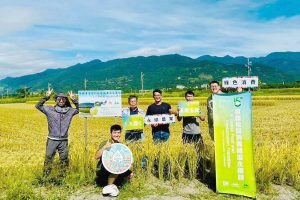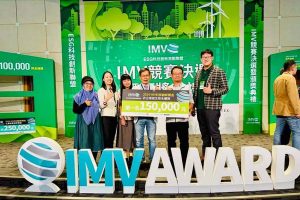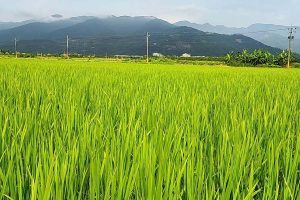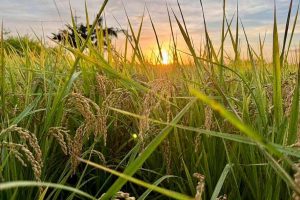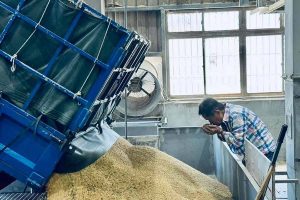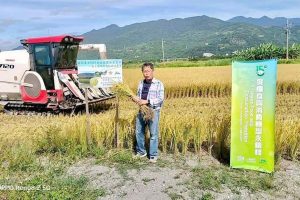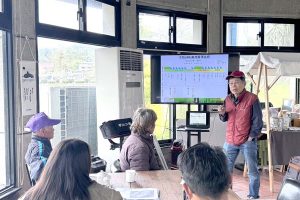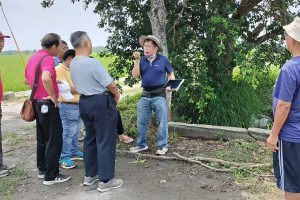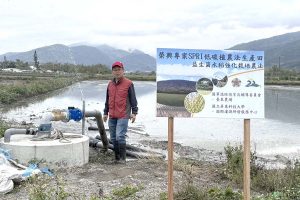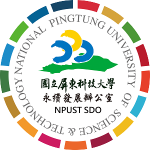The winners of the 2024 IMV Technological Innovation Competition were recently announced, and a team from NPUST secured the top spot in the Ecological Sustainability category among non-enterprise contestants. The team was composed of Distinguished Research Fellow Yu-Min Wang and Distinguished Research Fellow Cheng-Huei Yang of the NPUST General Research Service Center, Professor Wen-Shin Lin and Assistant Professor Li-Wei Liu of the Department of Plant Industry and students from the International Irrigation Research and Service Center. Together, they submitted the results of their “SPRI Low Carbon and Environmental Friendly Rice” project for consideration and won the first place for Ecological Sustainability. At the competition, which focused on the key issues of energy conservation, carbon reduction, and ecological restoration, NPUST was able to demonstrate its strong capabilities in technological innovation and sustainable development.
The successful results at the competition are attributed to two major technologies that the team has dedicated their research to: SPRI water-saving & carbon-reducing rice production and ICT smart rice production. The System of Probiotic and Rice Intensification (SPRI) approach is a friendly-farming technique that has been championed by Dr. Yu-Min Wang for many years. With increased use of probiotics and organic matter, the method allows for lower amounts of seedlings, reduced pesticides, reduced irrigation water, and reduced chemical fertilizers. By applying their technique, farmers can cut irrigation water by 30% while increasing yields by around 20%. On a 1-hectare rice field, this method can also reduce carbon emissions by about 5.43 metric tons per growing cycle.









